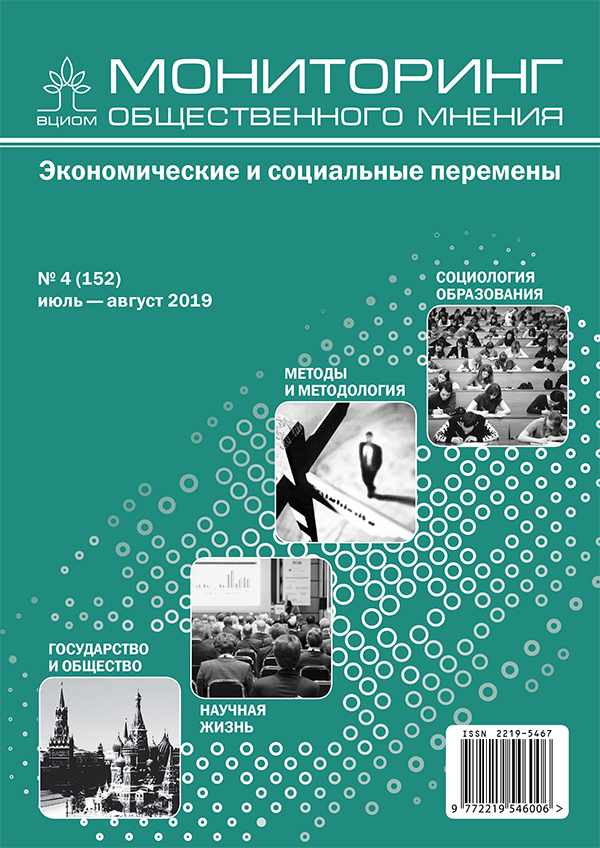В поисках сбалансированных интернет-метрик научной активности: пример Rg Score
DOI:
https://doi.org/10.14515/monitoring.2019.4.11Ключевые слова:
ResearchGate, Rg Score, Web 2.0, индикаторы, альтметрики, вебметрики, реформа, неолиберализм, социальная сеть, научная коммуникацияАннотация
Основной целью реформирования государственной системы науки в России является повышение эффективности, что требует пересмотра калькулируемых индикаторов научной деятельности. Процесс осложняется трансформацией научной коммуникации, преимущественно детерминированной развитием коммуникационных технологий, благодаря которым видоизменяются не только средства, но и формы научного взаимодействия. В подобных условиях классические библиометрические показатели не могут выступать в качестве исчерпывающих метрик, так как возникает необходимость учета научной деятельности во всей полноте, а не только на интертекстуальном уровне. Необходимые метрики могут быть разработаны с учетом процесса цифровизации науки. На данный момент «невидимый колледж» становится осязаемым благодаря развитию ряда научных интернет-площадок, предоставляющих возможность работать не только с огромными массивами данных, но и с собственными индексами. В данной статье рассматривается один из таких показателей — Rg Score, призванный измерить активность пользователей самой крупной на данной момент академической социальной сети — ResearchGate. Архитектура этого интернет-сервиса предоставляет возможность изучения и, отчасти, моделирования показателей нового типа, учитывающих не только публикационную, но и коммуникативную активность исследователей. Конечно, данный показатель пока не может быть использован в рамках управленческой деятельности, однако подобный тип альтметрик видится нам вполне перспективным.






